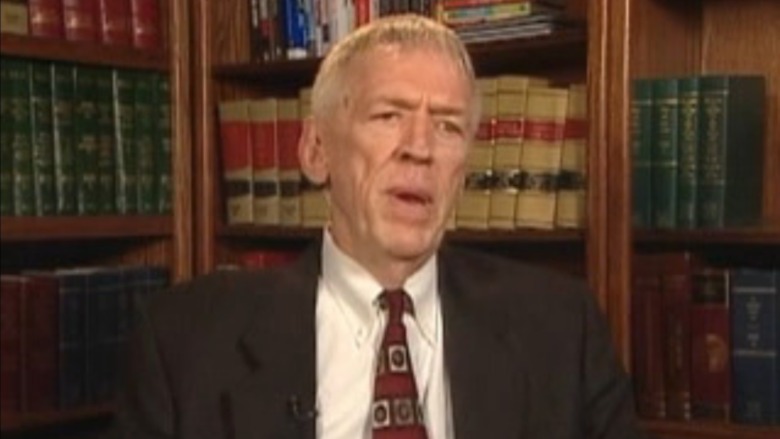The Wild Life Of The Man Who Took Down Televangelist Scammers
Ole Anthony, a former well-paid consultant to the Republican party who founded the Trinity Foundation with the purpose of exposing and taking down what The New York Times called "a rogue's gallery of unscrupulous televangelists and faith healers," died at home in Dallas, Texas on April 16. He was 82 years old. Born in Saint Peter, Minnesota, he got into drugs and crime as a teenager and was given a choice between military service or prison. After a stint in Air Force intelligence, he became a defense contractor and moved to Dallas, where he narrowly lost a race for the State Legislature, "living large" with a luxury apartment and a string of girlfriends.
A chance interaction in 1972 with a British missionary who talked about self-denial as the only way to God changed Anthony forever. He immediately gave up his lavish lifestyle and started the Trinity Foundation a year later. Too abrasive and brash for the wealthy crowd he ran with (and attempted to attract to his organization), Anthony taught himself theology, became "obsessed with the austere mysticism and doctrinal fluidity of first-century Christianity" and "began to attract disciples from the margins of Dallas society." In 1988, one of his followers relayed how he'd given the last of his money to televangelist Robert Tilton. Ole Anthony found a new purpose: taking down rich, manipulative preachers who preyed upon the poor and vulnerable.
The Trinity Foundation's website says it's been "tracking religious fraud and helping victims for over 30 years" as "the leading "watchdog" of religious media.
Exposing fraud committed in the name of God
The organization is committed to "conducting investigations and providing information used to expose fraud and abuses committed in the name of God." According to The New York Times, some members of the Trinity Foundation, including Ole Anthony, take a vow of poverty and acquire a private investigator's license. The Foundation's tactics include what Anthony called "garbology — rooting through dumpsters for evidence of legal or spiritual fraud by televangelists."
Over 35 years, the Foundation went after over 300 televangelists and was partially responsible for Robert Tilton losing his $80-million-a-year organization, and the imprisonment of W.V. Grant for tax evasion. In addition to appearing on programs like "Inside Edition" and "Primetime Live" and compiling their findings into reports they distributed freely to the press, the Trinity Foundation started working with the Senate Finance Committee in 2007 to investigate six televangelists for financial misconduct. In an interview with Katie Couric available on YouTube, Anderson said he'd been offered up to $5 million to "just disappear." He criticized ministers for taking in huge amounts of money that they then used as their "personal piggy banks" with "no accountability, no reporting requirements, no oversight" — "the Gospel of Greed," as The New Yorker quoted him in 2004.
Anderson and the Trinity Foundation were not without their critics. Some, per the Dallas Observer, accused Anderson of running a cult, with one former member writing a tell-all book called "I Can't Hear God Anymore." Anderson lived in a home with other members of the Trinity Foundation; he had no immediate survivors.

